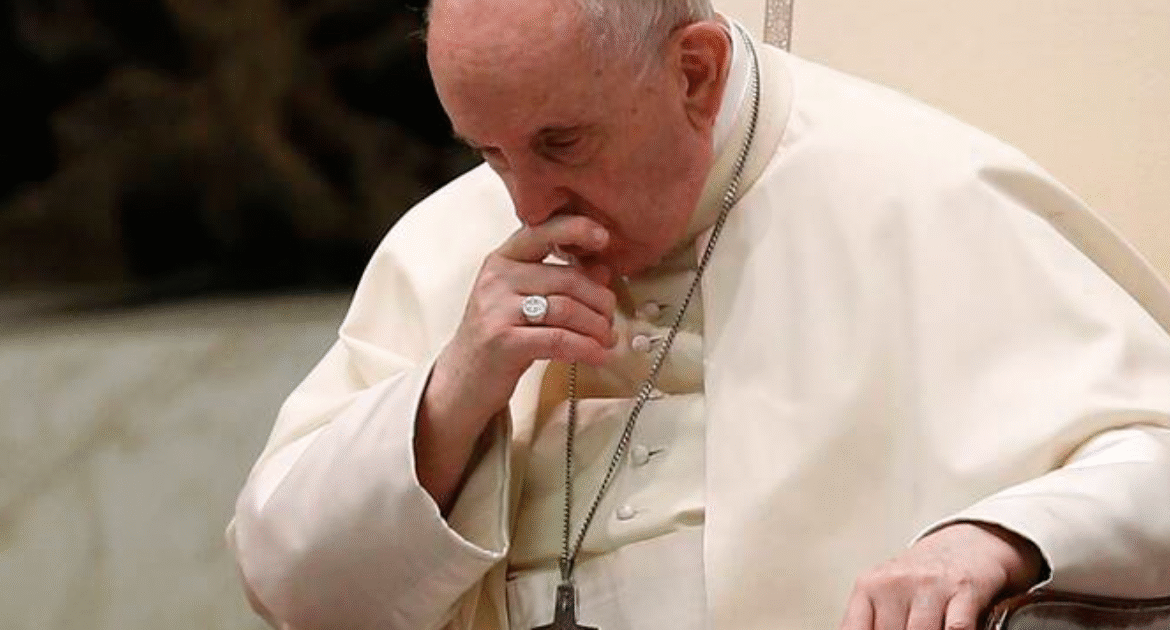
Pope Francis Dies the Day After Christians Celebrate the Resurrection


Just one day after Easter, the day Christians celebrate Christ’s victory over death, Pope Francis passed into eternal life. His death, so closely following the Church’s most sacred feast, was like a final gesture of faith from a man who devoted his life to preaching mercy, humility, and the hope of resurrection.
In 2013, Pope Francis, born Jorge Mario Bergoglio in 1936, became the first pope from the Americas, the first Jesuit pope, and the first non-European pope in over a thousand years. He brought a spirit of humility and compassion to the papacy, marked by a deep concern for the poor and the marginalized. “When you give alms, do you look into the eyes of the man or woman to whom you give alms? Do you touch their hand, or do you throw the coin and look the other way?” he asked. “Charity is not simply giving money. It is involving yourself in the lives of others.”
He was deeply concerned about healing our wounded Church. “The thing the church needs most today is the ability to heal wounds and to warm the hearts of the faithful; it needs nearness, proximity. I see the church as a field hospital after battle. It is useless to ask a seriously injured person if he has high cholesterol and about the level of his blood sugars! You have to heal his wounds. Then we can talk about everything else. Heal the wounds, heal the wounds. … And you have to start from the ground up.
Much of Pope Francis’s ministry was dedicated to exploring the role the Church should play in the lives of the faithful—and in the lives of all God’s children, whether they have heard His call or not. He consistently reminded us that the Church must be open, welcoming, and merciful, never turning anyone away. “The Church is not a tollhouse,” he wrote in Evangelii Gaudium, “it is the house of the Father, where there is a place for everyone, with all their problems.” He called the Church to be “a place of mercy and hope, where everyone is welcomed, loved and forgiven.”
For Francis, the Church was not a fortress of the perfect but a field hospital for the wounded, a missionary body that goes out to meet people where they are. “Evangelization does not begin by proselytizing,” he said, “but by being with the people and witnessing joy.” He urged us not to reduce the Church to a “customs office,” requiring moral or spiritual credentials to enter, but to remember that “Jesus is the gate… He opens His arms to welcome all who seek Him.”
And we can all be welcomed into the Church because of God’s forgiveness. God knows we sin—and He forgives us, even when we sin against Him “seventy times seven times” (Matthew 18:22). As Pope Francis so often reminded us, “The Lord never tires of forgiving. It is we who tire of asking for forgiveness.”
We are reminded to do good works and to help others, just as the Lord taught us. “Those who love do not stand idly by, but serve others,” Pope Francis said. “We must restore hope to young people, help the old, be open to the future, spread love. Be poor among the poor. We need to include the excluded and preach peace.” As someone who spends time in war zones among those most in need of God’s mercy, his words have always reminded me—and others, including aid workers and Christians on the front lines—that fear is often a symptom of weakened faith. “Have the courage, then, to replace your doubts with dreams,” he said.
“Do not remain hostage to your fears, but set about working to realize your goals!” And he never claimed the Christian life would be easy. Just because God says “no” to our requests, or we face hardship, suffering, or disaster, does not mean God does not love us. As Pope Francis gently challenged, “Prayer is not like a magic wand… how do you pray? Like a parrot? Do I really pray with a need in my heart?”
When a pope passes away, Catholics around the world are invited into a sacred period of mourning, reflection, and prayer. Laypeople, pray for the repose of his soul—through the Eternal Rest prayer, the Rosary, or attending a Requiem Mass. Memorial Masses may be held across dioceses, offering opportunities to gather in unity with the global Church. Some parishes will toll bells or place black or purple drapery over sacred images as signs of collective grief.
Catholics are also encouraged to pray for the College of Cardinals as they prepare to enter conclave, asking the Holy Spirit to guide the election of the next Holy Father. Finally, this moment offers a chance to reflect on the pope’s legacy and deepen our commitment to the Gospel values he lived by: mercy, humility, and love for the poor.
The post Pope Francis Dies the Day After Christians Celebrate the Resurrection appeared first on The Gateway Pundit.
